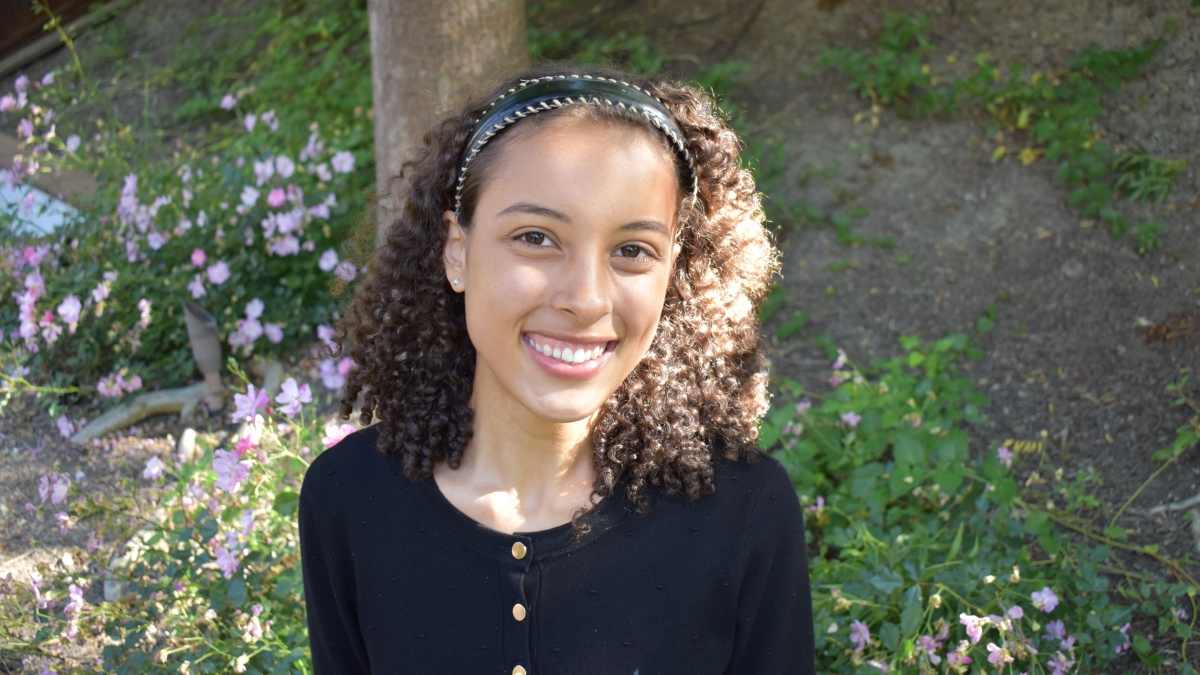ASU sophomore Sydney Lewis selected for Doris Duke Conservation Scholars Program

Sydney Lewis, a sophomore majoring in conservation biology and ecology, has been selected for the Doris Duke Conservation Scholars Program.
Sydney Lewis, a sophomore conservation biology and ecology major in Barrett, The Honors College at Arizona State University, looks forward to pursuing her passions as a participant in the Doris Duke Conservation Scholars Program.
The Lorraine Frank Office of National Scholarships Advisement (ONSA) at ASU recently announced that Lewis has been chosen for the program, which provides first- and second-year undergraduates exposure to the field of environmental conservation through field experience, research, internships, mentorship and leadership development.
The program, which aims to increase the number of undergraduate students of color who choose to pursue coursework and careers in conservation, spans two years. During the first summer, students participate as a cohort in an immersive field experience in various natural reserves and parks. Over the course of the year, the scholars receive additional support and development. The following summer, they will intern with various organizations and agencies.
Lewis, who is from San Ramon, California, will participate in the program starting this summer at University of California at Santa Cruz.
“I was thrilled when I found out that I was chosen. Receiving this opportunity felt like a momentous step in my professional journey,” Lewis said. “I hope my experiences in the program will point me toward the areas of ecology that I’m most passionate about and want to focus my professional work on. I also hope that this learning experience will help me develop a vision for the goals I want to achieve as a conservationist and the path I will take to achieve them.”
Lewis solidified her interest in ecology and conservation in high school, where she won the Trutek Environmental Journalism Award in her junior year for an article she researched and wrote about biodiversity loss. The article was featured in her school newspaper.
“My interest in nature and conservation began when I was very young. Back then, I spent a lot of time in nature and developed a strong connection to it because my experiences there felt deeply memorable," she said. "I’ve continued to spend much time in nature and find joy and comfort in the beauty of it. My experiences have largely shaped my identity and made me eager to learn about and devote my time to nature conservation.
Lewis, who has a 4.0 GPA, currently works as a research assistant in the Hall Lab at ASU, an urban ecology lab led by President's Professor Sharon Hall that investigates the ecological processes of urban ecosystems and finds ways to promote diversity, equity and inclusion at the college level.
She plans to attend graduate school and pursue a career in the field of ecology. Lewis is interested in investigating how human activities, such as land development practices, impact particular species and the wider effects that they have on ecosystems.
In addition to her work in the Hall Lab, Lewis serves as a as a peer mentor for the Barrett Mentoring Program, where she promotes student engagement with monthly events and a weekly newsletter for mentees.
“Barrett has linked me to resources such as ONSA and my honors faculty adviser that have helped create new opportunities for me, such as research opportunities and the Doris Duke Conservation Scholars Program,” she said.
Kyle Mox, associate dean of national scholarships advisement at ONSA, said Lewis’ academic achievement, sustained interest in nature and conservation, and leadership experience as a Barrett peer mentor and tutor made her a competitive candidate for the Doris Duke Conservation Scholars Program.
“The Doris Duke Conservation Scholars program is unusual among undergraduate fellowship in that it spans two years. Sydney can look forward to life-changing experiences that will accelerate her towards her career goals. We’re very proud of her and excited to see what the future holds,” Mox said.
More Science and technology

Cracking the code of online computer science clubs
Experts believe that involvement in college clubs and organizations increases student retention and helps learners build valuable…
Consortium for Science, Policy & Outcomes celebrates 25 years
For Arizona State University's Consortium for Science, Policy & Outcomes (CSPO), recognizing the past is just as important as…

Hacking satellites to fix our oceans and shoot for the stars
By Preesha KumarFrom memory foam mattresses to the camera and GPS navigation on our phones, technology that was developed for…